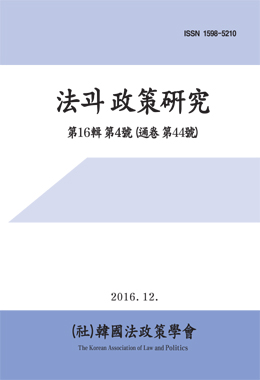외국인 투자자와 소재국 간의 경제적 관계를 규율하는 국제법 규범과 관련하여 등장한 최근의 가장 중요한 한 가지 논점은 국제무역법과 국제투자법의 관계에 관한 것이다. 상품과 서비스 교역에 의한 무역활동과 자본의 이동과 설립에 의한 투자활동이 국제적 경제활동의 장에서 현실적으로 통합됨에 따라, 상호 독립된 법규범으로서 성립되고 발전해 온 국제무역법과 국제투자법에 대하여 수평적 규범 통합론이 등장하게 되었다.
국제무역법 규범과 국제투자법 규범은 각 규범의 정책적 목표, 법적 특성, 그리고 기능면에서 상이하지만, 공통적으로 국가가 공공의 이익을 위해 규제적 행위를 취할 수 있는 정책적 재량권 개념을 내포하고 있다. 국제무역법은 일반적 원칙에 대한 예외로서 국가가 공공의 이익을 위해 국제무역법상의 의무 위반을 야기하는 규제적 행위를 취할 수 있도록 허용하고 있다. 반면에, 국제투자법은 국제관습법을 통해서 성립된 공공규제권 원칙을 수용하여, 이를 통해 정책적 재량권을 고려한다. 정책적 재량권 개념을 내포하고 있는 공공규제권 행사의 여부에 따라 국가의 규제적 행위의 국제투자법상의 합법성 또는 위법성 여부가 결정된다.
국제무역법과 국제투자법의 통합론과 관련하여 매우 중요한 분쟁 사례가 바로 필립 모리스 기업의 담배상품 포장에 관한 사례들이다. 공중의 건강보호를 위한 담배상품의 포장에 대한 국내 규제가 담배포장과 관련된 지적재산권을 침해하는 사안이 국제무역법의 분쟁해결절차인 세계무역기구의 패널과 국제투자법상의 분쟁 해결절차인 국제투자분쟁해결센터의 투자조약중재에 제기되었다. 이는 국제무역법 위반이 국제투자법 위반을 동시에 성립시키는 경우에 해당하는데, 본 연구에서는 국제법상 외국인 재산의 침해 및 수용을 중심으로 하여, 이 분쟁사례들을 분석하고, 국제무역법과 국제투자법을 포괄하는 국제법 체제의 일관성과 통일성의 견지에서 국제법 규범의 해석론을 다루게 될 것이다.
본 연구는 국제무역법과 국제투자법의 수평적 규범 통합을 위해, 공통된 요소로서 국가의 규제적 행위에 대한 법적 판단을 위해 고려되는 정책적 재량권에 관한 법리에 대한 통섭적 접근과 국제법 규범 해석의 일관성과 통일성을 위한 해석 방법론이 요구된다는 결론을 도출하고 있다.
In relation to international legal regulation of the business relationship between a foreign investor and a host state, the primary question that has recently arisen is one concerning the relationship between international trade law and international investment law. As trade activities involving the exchange of goods and services across borders and investment activities involving capital transfer and commercial establishment abroad have in effect become integrated in international economic field, theoretical inquiries have begun to search for the potential of horizontal norm-integration of international trade law and international investment law.
International trade law and international investment law clearly differ each other in terms of policy objectives, legal characteristics, and functions. Nonetheless, they possess principles that commonly reflect the concept policy discretion, which can be exercised by a state in conducting regulatory acts for public interests. International trade law provides for certain exceptions in which a state is permitted to take a regulatory measure to perform public interest in violation of obligations required by the law. On the other hand, international investment law embraces the policy power doctrine, a rule of customary international law, of which policy discretion is the central constituent. The exercise of police power is the deciding factor in the question of whether the state’s regulatory measure is legitimate or not under international investment law.
With regard to the norm-integration of international trade law and international investment law, one of the most important cases is the disputes about Philip Morris’s tobacco packaging. The issue that a state’s regulation of tobacco packaging for the protection of public health breached intellectual property rights relating to tobacco packaging was submitted to both World Trade Organization panel, the mechanism of dispute settlement under international trade law, and arbitral tribunal for investment treaty arbitration, the mechanism of dispute settlement under international investment law. These cases involved the situation in which an alleged violation of international trade law also constituted an alleged violation of international investment law. The panel and the arbitral tribunal both reached the conclusion that the state’s regulatory measure was legitimate because it was taken for performing public interest.
This research analyzes, with focus on a state’s expropriation of foreign-owned property, the above disputes and explores into interpretative approaches toward rules of international law, in terms of securing consistency and unity in the international legal regime that covers both international trade law and international investment law.


